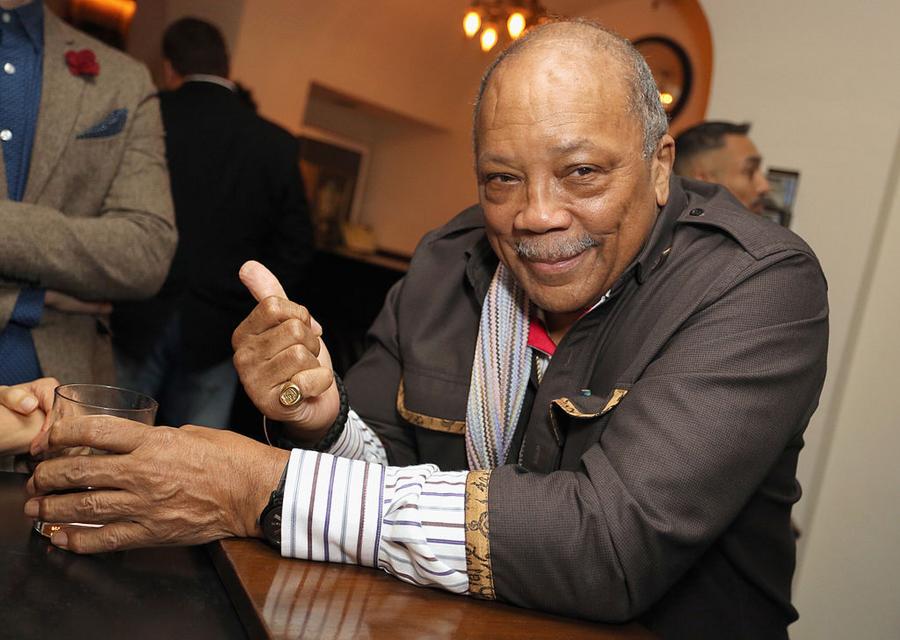Famed music producer Quincy Jones was perhaps the key Michael Jackson collaborator during the heyday of the King of Pop's solo heyday producing a trilogy of Jackson's albums which were widely considered as masterpieces as well as all-time commercial blockbusters: Off the Wall, Thriller, and Bad. But thanks to some ambiguously worded contracts from back when those records were made, Jones and the Michael Jackson estate never saw eye to eye on how much Jones was owed in royalties from the three albums, plus posthumous Jackson projects like the This Is It documentary and soundtrack. The Hollywood Reporter reports that Jones went to court, seeking $30 million from the estate, and was recently awarded nearly a third of that at $9.4 million.
It's true that $9.4 million isn't the $30 million Jones wanted, but it's also a lot more than the $400,000 the Michael Jackson estate claimed it owed Jones due to an "accounting error." Despite this compromise, in a statement Jones expresses his satisfaction with the decision in much more than financial terms:
"This lawsuit was never about Michael, it was about protecting the integrity of the work we all did in the recording studio and the legacy of what we created. Although this judgment is not the full amount that I was seeking, I am very grateful that the jury decided in our favor in this matter. I view it not only as a victory for myself personally, but for artists' rights overall."
Rachel Murray/Getty Images
The trial lasted three weeks, and the decision represents the culmination of a long legal fight by Jones to get what he felt he was entitled to in those long, fruitful hours in the recording studio with MJ. The Jackson estate's attorneys were not as pleased with the decision, as you might imagine, issuing their own statement to the press:
"While the jury denied Quincy Jones $21 million – or more than two-thirds of what he demanded — from The Estate of Michael Jackson, we still believe that giving him millions of dollars that he has no right to receive under his contracts is wrong."
Michael Jackson estate attorney Howard Weitzman told Billboard before the decision was reached that they would go to appeal if Jones received a large amount of money, so it's possible this long legal dispute isn't over yet.

/2017/07/GettyImages-475154623.jpg)
/2020/02/quincy.jpg)
/2019/09/GettyImages-71437047.jpg)
/2018/08/GettyImages-85259926-e1535169862638.jpg)
/2023/02/GettyImages-95476311.jpg)
/2017/02/GettyImages-88701714.jpg)
/2013/06/Wink-Martindale-1.jpg)
/2013/10/Monty-Hall-1.jpg)
/2021/12/peter.jpg)
:strip_exif()/2020/06/taylor.png)
/2014/07/Ana-Ivanovic.jpg)
/2019/12/nc.jpg)
/2010/11/Sara-Bareilles.jpg)
/2019/02/jalex.jpg)
/2014/04/GettyImages-55325324.jpg)
/2013/01/Al-Jarreau.jpg)
/2020/03/steve-wynn.jpg)
/2020/11/Jasmine-Sanders.jpg)
/2020/10/cate.jpg)
/2022/01/audra.jpg)
/2013/01/Jude-Law.jpg)
/2021/01/alec-guinness.jpg)
/2023/10/elaine-wynn.jpg)